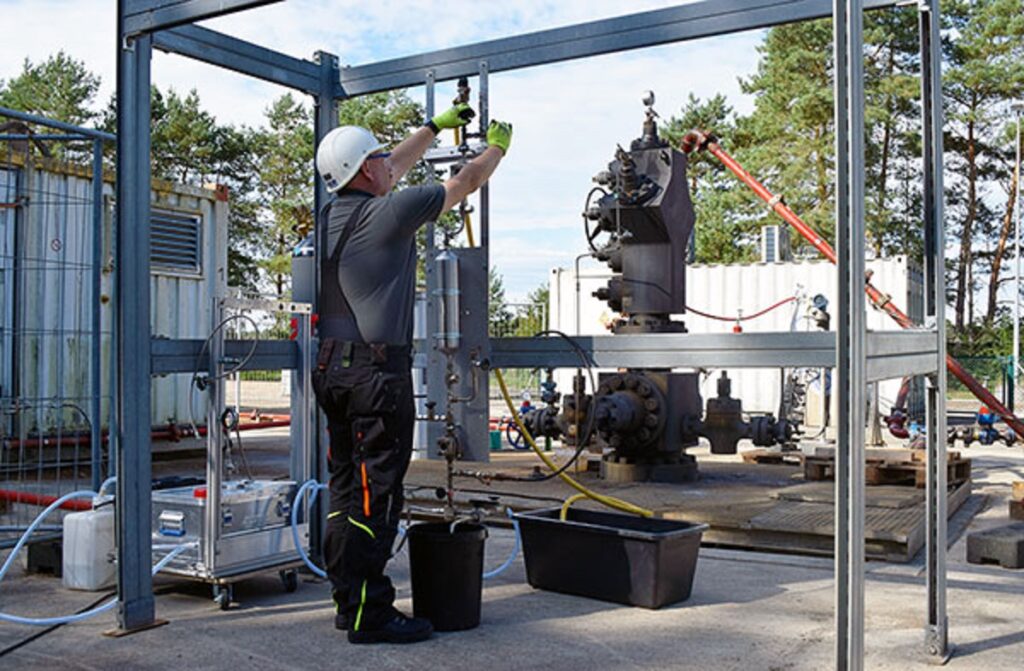
The BGR will test a prototype for geothermal lithium extraction that has been developed as part of the UnLimited project by the companies EnBW and Hydrosion GmbH. Geothermal brine will be taken from the Horstberg Z1 research will near Dreillingen in the Uelzen District.
After a successful test of the lithium extraction prototype, plans for more tests will be formulated for the spring of 2024 still as part of the Li+Fluids project.
About the Li+Fluids Project
The German Raw Materials Agency (DERA) under the BGR expects that global demand for lithium could exceed the expected global total production three times by 2030, mainly driven by increasing demand for lithium batteries in e-mobility. The potential for lithium production is promising in the North German Basin and the Upper Rhine Graben. Increased lithium contents of up to 350 mg per liter of deep water have already been detected in the hydrothermal fluids of the North German Basin.
The aim of the Li+Fluids project is to create a comprehensive study of the potential for lithium extraction from hydrothermal fluids in Germany. It is intended to contribute to the development of a (secondary) raw materials strategy and to be a decision-making aid when planning geothermal energy sites with heat and additional raw material production. In particular, the potential of the North German Basin is assessed with regard to economical lithium production.
In addition, a fundamental sustainability assessment of lithium production at the geothermal energy locations under consideration is carried out in comparison to conventional extraction of lithium.
Existing and future extraction methods are examined for their applicability and sustainability in the NDB and re-evaluated technically, ecologically and economically. The goal is a zero-emissions process. For this purpose, the BGR’s Horstberg research borehole is used as a real laboratory in the NDB. Lithium extraction tests are being carried out here for the first time in the NDB. For reference, fluids extracted from the Buntsandstein formations have a Li concentration of 190 mg/L.
The Li+Fluids project is financed by the the Federal Ministry for Economic Affairs and Climate Protection (BMWK).